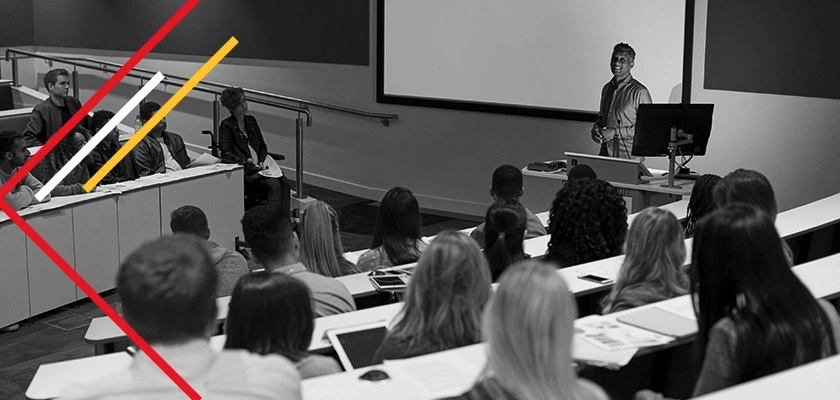Listen Up: How to Communicate Effectively with Students
Cultivating a classroom that values open communication is a key to impacting student success throughout their time in your course to the rest of their lives.

Student-professor communication can directly affect the success of students. Frequent and repeated interaction between students and professors leads to effective learning and the overall success of the student. Effective communication is essential for a smooth and respectful classroom.
Here are a few strategies that would be of the essence of effective communication between instructors and their students:
Respectful Communication
Respect is the foundation of effective communication, especially in the classroom. Communicate respectfully in the following ways:
- Be honest and considerate
- Choose words that are appropriate to the situation
- Avoid inflammatory or provocative comments
- Maintain eye contact with students and focus on the speaker
- If there are issues – disruptive behavior, playing with a cellphone, talking while you’re teaching, etc., – take the student aside, either during or after class, to address. Private communication and correction can be far more effective than calling them out and embarrassing the student during class time.
- Avoid continually interrupting students when speaking. Instructors who show respect towards their students have generally more respectful classrooms because students learn and mirror effective behavior and communication skills.
Check for Understanding
An instructor should always check for understanding. Using such common prompts as "Does that make sense?”, ”Any questions?", or "Did you all get that?” will not produce much meaningful information in determining whether or not students "get it”.
At most students will either nod or sit quietly, the instructor doesn't know whether they understand, or they are too confused to answer, or they are too embarrassed in front of others.
To check for understanding:
- Students can write down a one-sentence summary of what they think the lecture was about or write a question they have.
- In a one-on-one conversation, a teacher should ask the student to repeat/summarize the main point or outcome of the discussion. This is effective with teacher-student conversations or student-student check-ins.
Communicate in a Variety of Ways
Let's face it, every semester you will always find some students that would ask you to repeat the same information about an upcoming assignment or test right after you’ve finished announcing it. Many students don't take in what they hear the first time. Effective communication requires using different techniques in communication. When you want to make a point, consider the following:
- The use of visual tools will go along with your verbal communication. For example, if you are discussing safety in labs, have a graphical chart handy to help students remember. In a lecture situation, share hand-outs that outline major lesson points and outcomes.
- Give the student the opportunity to reflect and provide feedback
- Repeat yourself to reinforce your message
- Try reinforcing your messages virtually – a reminder or announcement via email, school-LMS, homework software (like McGraw-Hill Education’s Connect or ALEKS), etc. can help strengthen your communication.
Nonverbal Communication
Everyone communicates nonverbally through facial expressions and gestures. Careful use of nonverbal cues such as facial expression, the tone and the pitch of the voice, and gestures is essential for effective communication. Here are some tips for effective nonverbal communication:
- Avoid rolling your eyes at a student's question or comment.
- A disapproving stare can negatively impact a student who is unmotivated or off task.
- A bright smile for a student who is having a bad day means more than they will ever reveal. It means that you are feeling sympathy and also empathy for this student.
Gestures and animated facial expressions also give weight and enthusiasm to what a teacher has to say. Students who see a teacher actively engaged in what they are teaching will be much more engaged.


